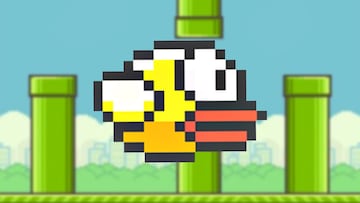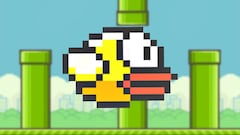The author of Flappy Bird rejects the new version: “No, I have no related with their game. I did not sell anything”
Dong Nguyen breaks years of silence to ensure that he has not authorized a new version of his game.

The story of Dong Nyugen and Flappy Bird is one of example, of moral rectitude, and of standing firm in what you want in life. A young developer from Hanoi created what countless developers around the world dream of creating every day: a global hit, a game that even half the world’s TV news is talking about. The kind of title that can spawn a multimillion-dollar franchise with sequels, movies, and the whole package that makes the creator a multimillionaire. Instead, Dong looked at his creation, saw the addictive effect it had on gamers, saw the countless clones that came out trying to cash in on his idea, as well as the attention generated around it, and said “enough”. He was unhappy, and the only way to stop being unhappy was to sacrifice his creation.
I am sorry 'Flappy Bird' users, 22 hours from now, I will take 'Flappy Bird' down. I cannot take this anymore.
— Dong Nguyen (@dongatory) February 8, 2014
Sacrificing success as a path to happiness
Flappy Bird was being pulled from mobile platforms, leaving a myriad of clones but no original game to rely on. Nyugen would not sell the name. Part of his decision was motivated by the messages he received from parents and young people around the world about what he had created: “But the hardest thing of all, he says, was something else entirely. He hands me his iPhone so that I can scroll through some messages he’s saved. One is from a woman chastising him for “distracting the children of the world.” Another laments that “13 kids at my school broke their phones because of your game, and they still play it cause it’s addicting like crack.” Nguyen tells me of e-mails from workers who had lost their jobs, a mother who had stopped talking to her kids. “At first I thought they were just joking,” he says, “but I realize they really hurt themselves.” Nguyen – who says he botched tests in high school because he was playing too much Counter-Strike – genuinely took them to heart,” he told Rolling Stone in an interview.
Related stories
That’s why the much-hyped return of Flappy Bird came as such a surprise. Nyugen, a shy character, had forged an existence more in line with his desires: a small studio where he never felt lonely again, and fun mobile games that were not Flappy Bird in terms of media attention, but that allowed him to live his dream as someone who wanted to make a living from video games. Had he changed his mind? A seven-year silence on Twitter (X) was broken by a new message from the author: “No, I have no related with their game. I did not sell anything. I also don’t support crypto.”
No, I have no related with their game. I did not sell anything.
— Dong Nguyen (@dongatory) September 15, 2024
I also don't support crypto.
The new project will be exposed for what it is: a scam to take advantage of a well-known name. Perhaps an attempt to appropriate the franchise because the original owner is no longer using it. In any case, nothing is morally edifying, nor anything that breaks the example the author set in his time: there are more important things than fame and money.



Complete your personal details to comment